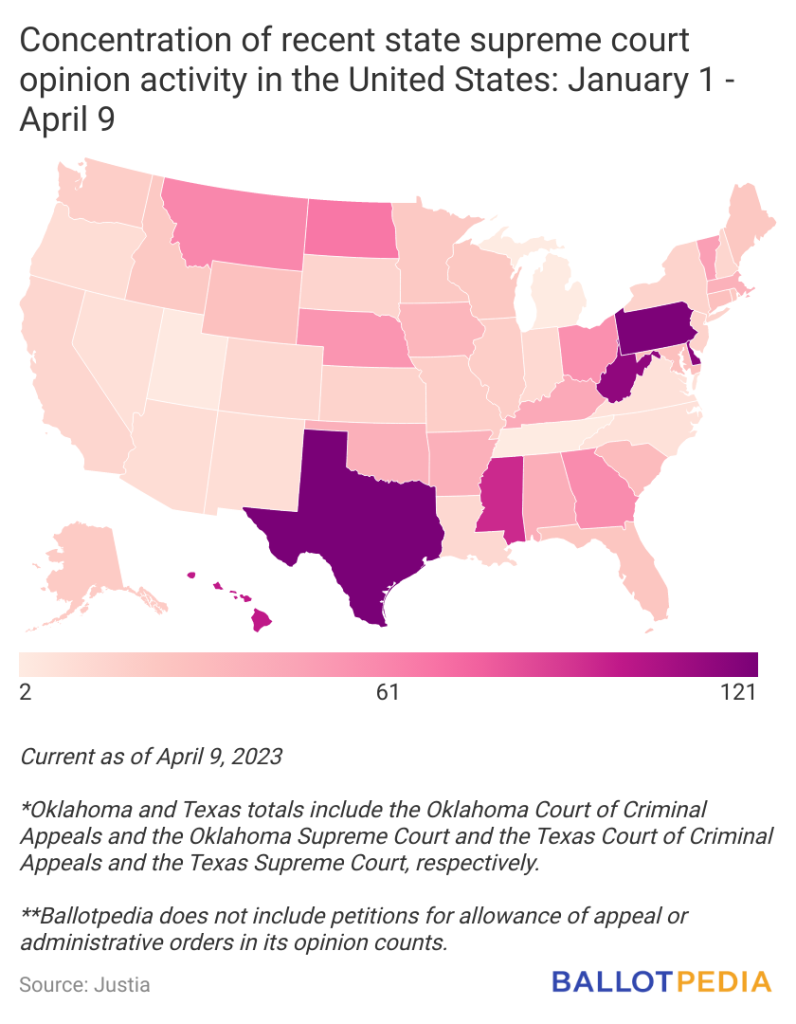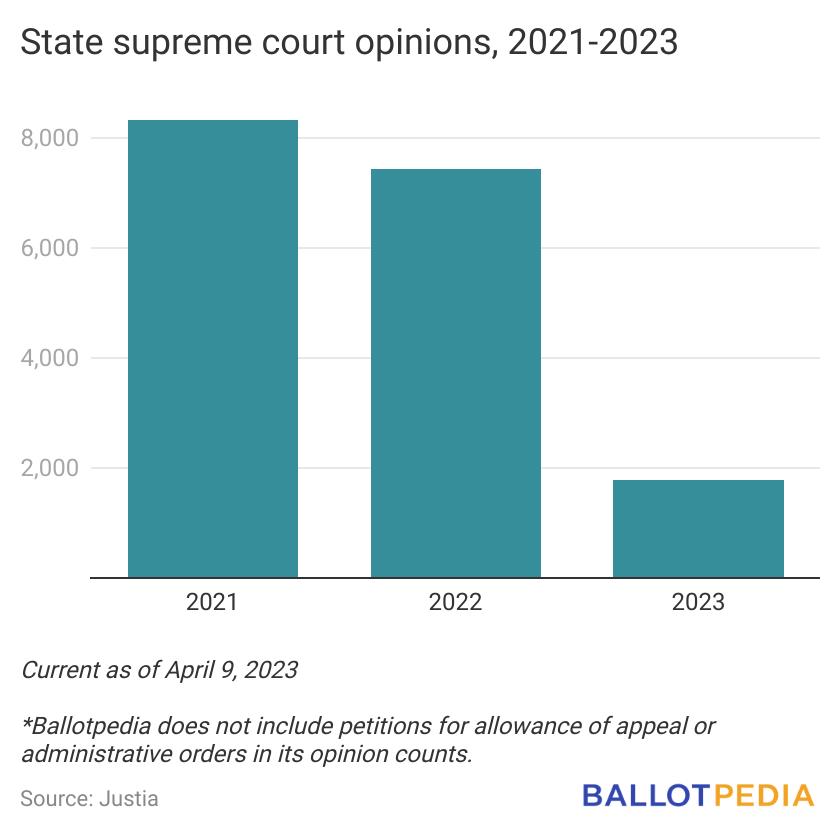The Wisconsin Supreme Court issued four opinions from April 3-9. As of April 9, the court issued 24 opinions in 2023 — nine more than this point a year ago. Three of four opinions are below:
- Banuelos v. University of Wisconsin Hospitals and Clinics Authority, where the court affirmed the court of appeals' ruling that "Wis. Stat. 146.83(3f) does not permit a healthcare provider to charge fees for providing copies of patient healthcare records in an electronic format."
- State v. Mull, where the court "reversed an order granting [convicted] a new trial, rejecting [convicted]'s argument that his attorney was ineffective for 'failing to file a third-party perpetrator motion regarding any one of the viable alternate suspects.'"
- ACUITY v. Estate of Michael Shimeta, where the court "affirmed the judgment of the court of appeals reversing the decision of the circuit court granting declaratory judgment for Acuity, a mutual insurance company, in this insurance dispute arising from a fatal automobile accident, holding that the court of appeals did not err."
From April 3-9, state supreme courts issued 144 opinions nationally. The Supreme Court of Appeals of West Virginia issued the most with 26. State supreme courts in 19 states issued the fewest with zero. Courts where judges are elected have issued 69 opinions, while courts whose members are appointed have issued 75.


The Wisconsin Supreme Court is the state's court of last resort and has seven judgeships. The current chief of the court is Annette Ziegler. The court issued 68 opinions in 2022 and 79 in 2021. Nationally, state supreme courts issued 7,423 opinions in 2022 and 8,320 in 2021. The courts have issued 1,787 opinions in 2023. Courts where judges are elected have issued 976 opinions, while courts whose members are appointed have issued 811. Wisconsin is a divided government, meaning neither party holds trifecta control.
Additional reading:


